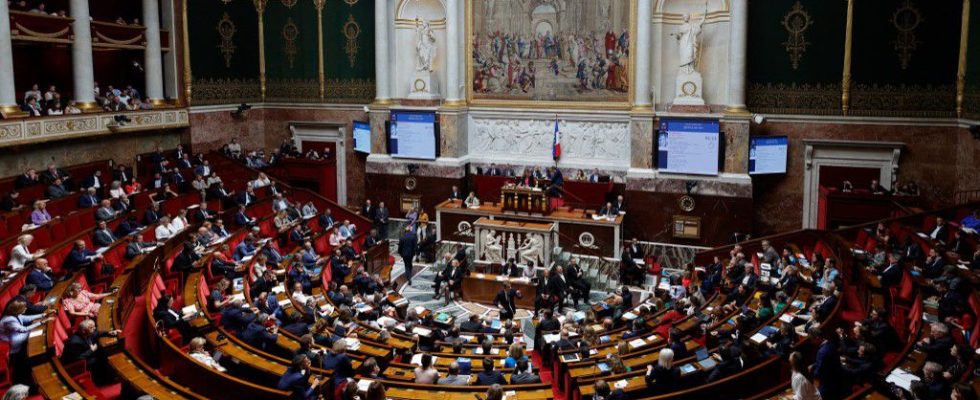The lower house risks finding itself in all its states. The debates on the “full employment” bill, adopted by the Senate at first reading, will begin in an extraordinary session this Monday, September 25 in the hemicycle, and should spill over into the ordinary session at the beginning of October. The examination of the text in committee, fiercely opposed by the left, has already caused a pre-school incident, with the opposition protesting against the holding of nightly debates.
For his part, the Minister of Labor Olivier Dussopt is clinging to his objective: reducing the unemployment rate to 5% by 2027 (compared to more than 7% today).
Towards better monitoring of RSA beneficiaries
The bill proposes to better coordinate the multiple players in the public employment service, with the keystone being a Pôle emploi renamed “France Travail” (even if the Senate wants to maintain the current name of the operator). And a network organization to facilitate the sharing of information. At a time when some companies are struggling to recruit, the government’s priority is to better target people furthest from employment, in particular RSA beneficiaries, to offer them “more personalized and more intensive support” towards employment. ‘job.
These beneficiaries, like the young people monitored by local missions, would now be automatically placed on the list of job seekers, all of whom would be invited to sign an “engagement contract”. “We cannot be satisfied with the current situation, with less than 20% of RSA recipients benefiting from monitoring,” argues Renaissance MP Christine Le Nabour, rapporteur of the text.
Tension around the weekly “15 to 20 hours” of activities
The new “duties” provided for in this contract bristle on the left, while the Republicans wish on the contrary to toughen them. The Senate, where the right is in the majority, has thus written in black and white the obligation to carry out “15 to 20 hours” of activities per week. But the government insists on maintaining a certain flexibility for people who have been “away from employment for a long time”. In any case, “it is obviously not a question of free work, nor of compulsory volunteering, but of integration and training activities to enable a return to employment”, insisted Olivier Dussopt in committee.
The National Rally is also hostile to the weekly activity obligation. And judges that the “complexity” of the new governance planned for the network of employment stakeholders is “doomed to stagnation”.
The “suspension-remobilization” sanction under debate
The Nupes deputies (LFI, PS, communists and ecologists), who intend to table “a motion of rejection” at the start of the debates this Monday, are also up in arms against the new “suspension-remobilization” sanction. It would make it possible to suspend the payment of an allowance to a person who does not respect their obligations, with the possibility of recovering it afterwards. The idea being to add a level before delisting. A “sordid” logic, according to MP Danielle Simonnet (LFI), or even “infantilization”, according to the communist Pierre Dharréville. It’s a “new blow” against the most precarious, says socialist Arthur Delaporte, pleading for an unconditional minimum subsistence income.
A cost between 2.2 and 2.7 billion euros
In line with the spirit of the text, the Republicans are concerned about the “financial cost of the reform”, estimated between 2.2 and 2.7 billion euros over three years. Alone, the creation of France Work, successor to Pôle emploi, should represent a cost of “between 300 and 500 million euros” in 2024, before a ramp-up which could be largely financed by Unédic, according to the Minister of Labor Olivier Dussopt. Among the most expensive measures: reinforced social and professional support for RSA beneficiaries who will then be automatically registered with France Travail.
The LR also deplore “a sort of latent recentralization” of the public employment service. “No article, no provision calls into question a single competence of the communities” in terms of employment or integration, insists Olivier Dussopt, assuring that the employment network will be managed “in co-piloting between the State and the communities local”. Also in the sights of the right: measures on the “reception of young children”, for which the municipalities are established as organizing authorities. The Senate reduced their new obligations provided for in the text, partly restored in committee by the deputies. But the debate will continue in the hemicycle.
